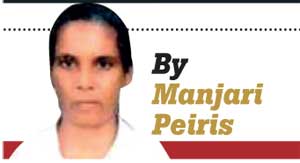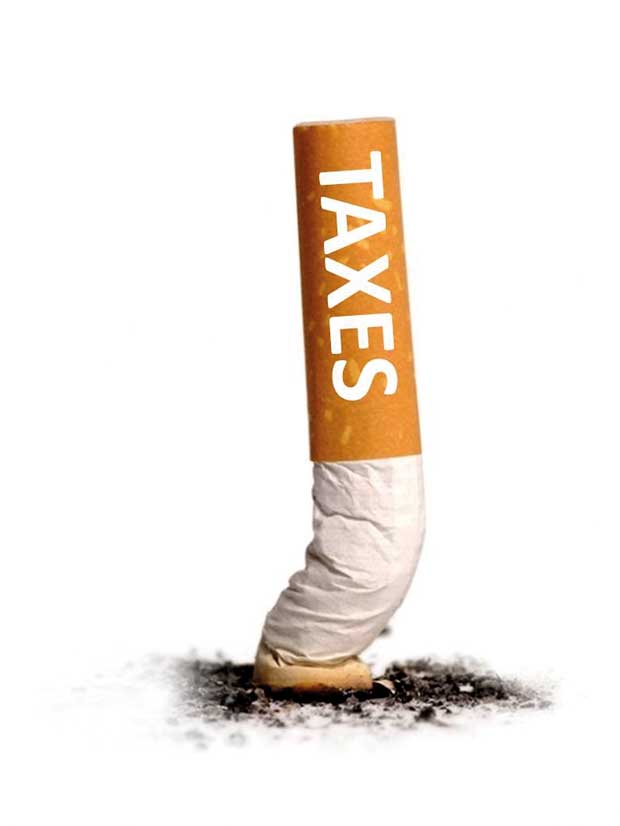Reply To:
Name - Reply Comment
Last Updated : 2024-04-19 21:46:00
Raising tobacco taxes is one of the most effective and cost-effective measures to reduce tobacco consumption and prevalence of tobacco use. Cigarette price increases discourage new smokers who are sensitive to price changes, particularly preventing the youth from smoking.
The 180 States Parties to the World Health Organization (WHO) Framework Convention on Tobacco Control (FCTC) have committed to continually and substantially reduce the prevalence of tobacco use and “recognize that price and tax measures are an effective and important means of reducing tobacco consumption by various segments of the population, in particular young persons” (FCTC Article 6). 
As such, the WHO has described tobacco tax increases as a “best buy” intervention that has significant public health impact and is highly cost-effective, inexpensive and feasible to implement. However, according to the 2015 WHO Report on the Global Tobacco Epidemic, only 10% of the world’s people live in countries with sufficiently high tobacco taxes.
The Southeast Asia Tobacco Control Alliance (SEATCA) is a regional multi-sectoral, non-profit, non-governmental alliance that supports ASEAN Member States in developing and implementing effective, evidence-based tobacco control policies in line with the WHO - FCTC.
SEATCA works closely with governments, non-government organizations (NGOs), development agencies, and the academe to advance tobacco control in the ASEAN region by facilitating increased participation and cooperation among advocates, organizing regional forums for sharing best practices and lessons learned, and acting as a regional leader to tackle urgent priority issues affecting the region.
World’s first Tobacco Tax Index by SEATCA compares the current progress of tobacco tax policy in the region against the WHO-FCTC Article 6 Guidelines to help governments identify and close gaps in and strengthen implementation of tobacco tax policies in their countries.
The index shows that while some countries have made significant progress in formulating and implementing tobacco tax policies, the region as a whole has advanced slowly in the past few years, outpaced by economic and income growth. Most countries also do not have any long-term tobacco tax policies with regularly evaluated fiscal and public health targets. Important obstacles in some countries are their ineffective tobacco tax structures and weak tax administration, as well as tobacco industry interference in tobacco tax policy formulation or in tax administration.

1. The WHO FCTC Article 6 Guidelines clearly state that implementation of Article 6 of the treaty is an essential element of tobacco-control policies; however, while all ASEAN countries recognize tobacco taxes as a significant source of government revenue, not all countries consider tobacco tax policy as public health policy. All governments should develop and implement long-term tobacco tax policies that include public health targets with periodic evaluations and adjustments.
2. Down trading or shifting to lower-priced tobacco products is expected and has been observed in countries where tax systems allow for wider retail price gaps. Because this diminishes the public health objective of reducing consumption, governments should apply a uniform specific tax system or a mixed system with a minimum specific tax floor, and should tax all tobacco products in a comparable way, such as in Brunei Darussalam, Malaysia, and Singapore.
3. Since licensing is a vital requisite for controlling the supply chain and for effective tax administration, all countries should implement a comprehensive licensing system for all parts of the tobacco supply chain. This should cover manufacturing equipment and, where appropriate, retailers and tobacco growers.
4. In combination with licensing, adequate record keeping is also crucial for governments to know the whole range and magnitude of the tobacco business. In line with FCTC Articles 5.3 and their implementing guidelines (and also listed in the FCTC Protocol to Eliminate Illicit Trade in Tobacco Products), governments should require the tobacco industry to periodically submit detailed financial reports that include information on tobacco production, manufacture and sales volumes, price by brands, market share, marketing expenditures and revenues, taxes due and paid, and volumes of raw material inputs, among others. This evidence will help governments monitor the impact of tax increases on employment and illicit trade in the tobacco sector and respond to arguments from the industry. Making these reports publicly available allows for independent analysis of the reports and may be a critical means for governments to effectively regulate the tobacco industry and prevent the submission of fraudulent reports.
5. While most countries make use of fiscal markings, such as tax stamps, to increase tax compliance, countries should also standardize pack sizes to increase the efficiency of tax administration and establish a tracking and tracing system, including markings with a unique identifier, to further secure the supply chain, reducing the risk of tobacco products entering the illicit market, and assist in investigations of illicit trade. All countries should also implement anti-forestalling measures as recommended in the Article 6 Guidelines to prevent tax avoidance and ensure that governments collect the additional revenues from tax increases, learning from the experience of countries, such as Philippines and Singapore.
6. All countries should follow the lead of Brunei Darussalam and Singapore that prohibit duty-free tobacco sales or of the Philippines that imposes excise on duty-free products, as exempting duty-free tobacco products from excise taxes is contrary to the overall objectives of increasing tobacco tax revenues and discouraging tobacco use. Banning duty-free tobacco will also reduce large-scale smuggling of tobacco products through economic free zones and duty-free channels.
7. In accordance with the FCTC Article 5.3 implementing guidelines and the guiding principles of the FCTC Article 6 implementing guidelines, governments should implement a code of conduct for all government ministries and officials that prohibits unnecessary government interactions with the tobacco industry and requires full transparency and accountability of any interactions necessary for the effective regulation, supervision, and control of the industry, including in the formulation and implementation of tobacco tax policies.
8. Since most countries have insufficient resources for tobacco control, they should seriously consider dedicating tobacco excise revenues for FCTC implementation, such as in Lao PDR, Thailand, and Vietnam. Ref: SEATCA

Add comment
Comments will be edited (grammar, spelling and slang) and authorized at the discretion of Daily Mirror online. The website also has the right not to publish selected comments.
Reply To:
Name - Reply Comment
On March 26, a couple arriving from Thailand was arrested with 88 live animal
According to villagers from Naula-Moragolla out of 105 families 80 can afford
Is the situation in Sri Lanka so grim that locals harbour hope that they coul
A recent post on social media revealed that three purple-faced langurs near t